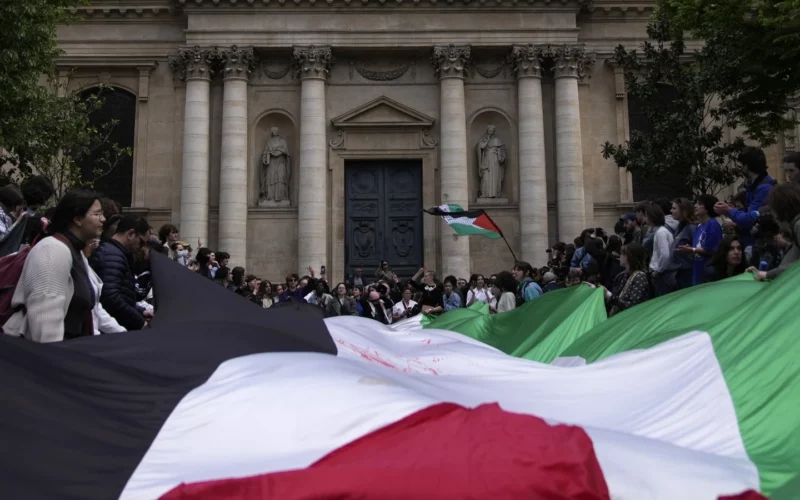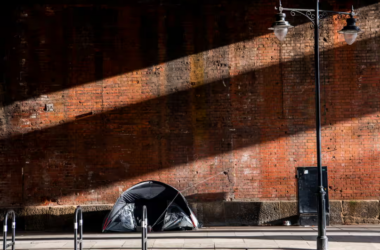Tensions have been on the rise between top universities in France and the French state as students stage pro-Palestine protests in response to Israel’s actions in Gaza. The demonstrations, inspired by similar protests in America, have caused disruption and controversy in prestigious French schools.
The protests began at Sciences Po university in Paris, where students occupied parts of the campus and blocked entry to a building. This led to the intervention of riot police, with Prime Minister Gabriel Attal denouncing the actions of the student protestors and asserting that the French government would not tolerate their behavior.
Following the protests at Sciences Po, students at the renowned Sorbonne University also demonstrated on campus in solidarity with Gaza. The actions of the students have sparked a debate regarding the appropriate response from university officials and the government.
Valerie Pecresse, president of the Ile-de-France region, has announced that funding for Sciences Po Paris will be cut until order and security are restored in the school. Despite the threat of police action, antiwar protesters at Sorbonne University have continued their demonstrations.
The protests at Sciences Po have called for an end to Israel’s war in Gaza and for the university to sever ties with institutions and businesses seen as complicit in the violence. While university officials have warned of potential disciplinary actions against the protestors, students remain determined to push for their demands.
The decision to involve riot police in the protests at Sciences Po has sparked controversy, with some students and faculty criticizing the actions of the university officials. The move to call in security forces is seen as an attempt to prevent a situation similar to the encampment protests at Columbia University in the US.
The protests at French universities come amid societal tensions related to the ongoing conflict in the Middle East. The police summoning of public figures accused of inciting terrorism has raised concerns about threats to public freedoms and a repressive climate in France.
Despite the challenges faced by the protestors, there have been some signs of progress. Sciences Po students recently met with university officials and agreed to hold a town hall meeting to address the concerns raised by the protests. Additionally, the university director has stated that disciplinary proceedings against some students will be dropped.
While the outcome of the protests remains uncertain, students at Sciences Po are determined to continue their fight for Palestine and hold the university accountable for its actions. They hope to inspire other universities to join the cause and stand in solidarity with Gaza.








